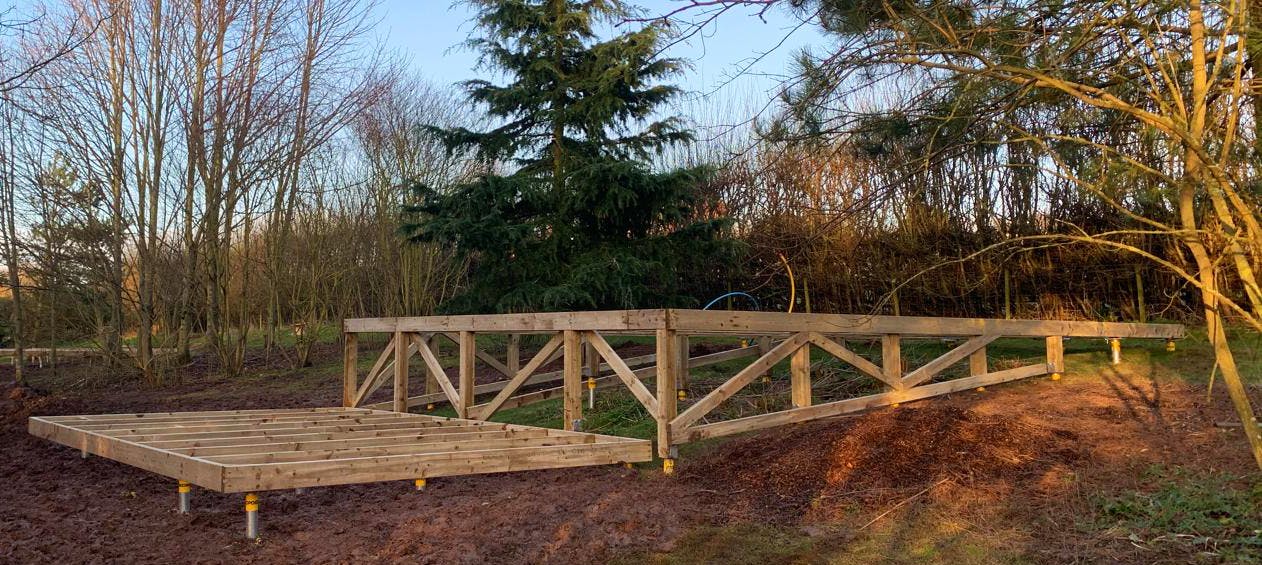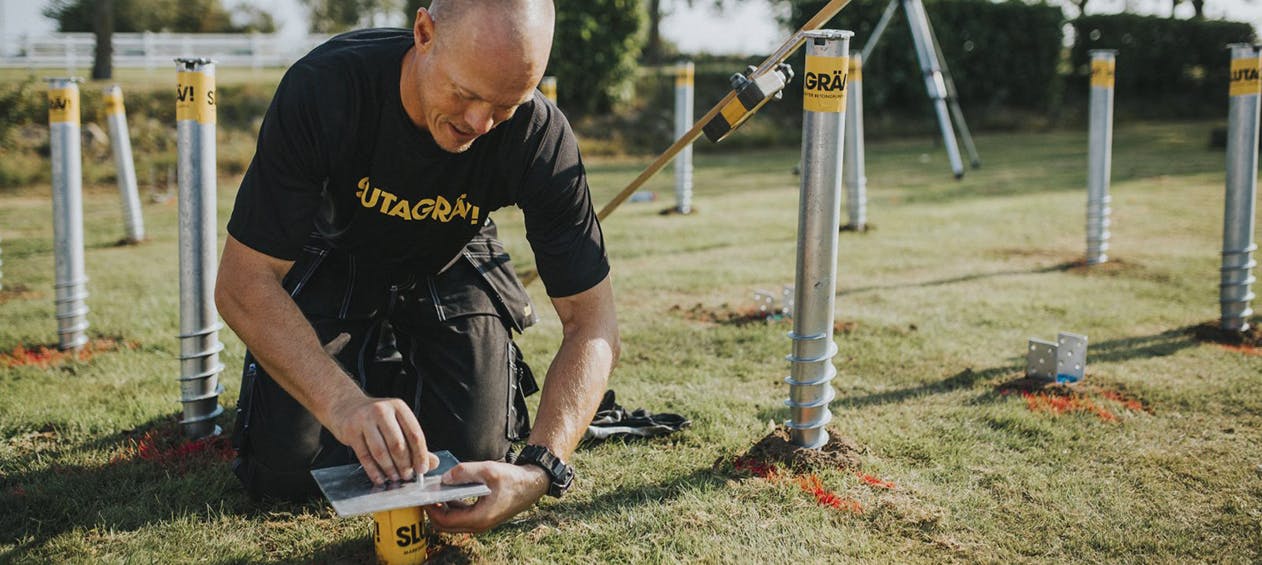Articles
Start / Articles / The key to a good foundation
The key to a good foundation
For anything in life to be a success, it needs to be well-grounded. This is especially true in the construction industry, where taking shortcuts is a sure path to failure. The very first practical step in all constructions is, of course, the foundation on which the building will rest. This is a principle that all construction companies know, but also one that all private building enthusiasts should take into account.
Whether you’re planning to build a garden house, a garden room or a sauna on your land, you’ll always face the challenge of building a durable foundation. A less-than-perfect foundation is definitely not something you should be satisfied with - after all, it's going to support the building in the coming years/decades. However, there's no perfect template for what a good foundation looks like, as they can be built in several different ways.
{%mailerlite_assembly_guide_widget%}
What are the options?
LECA blocks are often used for smaller construction projects, such as garden sheds or playhouses. You first dig out the topsoil to a frost-free depth, lay out a ground cloth and fill it up with macadam. Then you lay out the LECA blocks and make sure that they’re level and straight
Concrete supports are the most popular option with home builders who want to take on smaller construction projects. The supports are dug down to a frost-free depth and placed level. Then the surface is levelled using gravel or macadam. In our manuals, we have drawn concrete support plans for our houses, which you can follow. There we've specified how many concrete supports are required and where they should be placed. The disadvantage with supports is that it takes a lot of time and energy to dig the holes for them, and to get the supports level.
Fully cast concrete slabs are perhaps the most ambitious choice of ground anchors for home construction projects. Before the concrete can be cast, a base layer is created. Then you make a mould and add rebar. Concrete slabs are best suited for larger buildings or in houses where you plan to install underfloor heating. Casting a concrete slab is a much more expensive alternative than, for example, a ground screw.

Ground screws are a flexible alternative to concrete supports. With ground screws you receive extra assistance from a company that specialises in ground screws. They will come and install them for you. The screws are screwed into the ground and can easily be adjusted. The actual construction work can also start on the same day. The only limitation of ground screws is when the land is made up of rock or contains large stones. If the house will stand only partly on rock, however, it's still possible to use a ground screw.
Which option should I choose?
Of course, each type of anchor has its advantages and limitations. Having so many options doesn't make it easy to make the right decision when all you want to do is grab a hammer and start building your dream project.
If you want to keep to as tight a budget as possible and are happy to do all the work yourself, foundations on concrete supports are a good option that work well for most houses. For smaller houses, LECA blocks are a convenient choice. Casting a concrete slab is a slightly more complex job that most home builders prefer to avoid. If you want to install underfloor heating, however, it's the obvious choice. Many people then decide to enlist the help of a local construction company to prepare the foundation.
Ground screws are a fast and flexible alternative to concrete supports. With a ground screw, you avoid the digging and can get started with the construction sooner. Ground screws are high-quality ground foundations that are ready for construction as soon as the last screw is installed. You, on the other hand, avoid dug-up lawns, trampled flowerbeds, needing to dig and heavy concrete sacks. You also gain more time for other activities. Here at Polhus, we want you to succeed with your construction project and can help you find the option that works best for you.
Our advice is to think carefully about which type of foundation is best for your project. Whether you prioritise time, money or a lower impact on the environment and surrounding nature, the differences between the various types of foundation can actually be quite substantial.

They put in the screws, you do the rest!
If you're interested in hiring a company that installs ground screws, Stop Digging are the experts we recommend. For almost 10 years Stop Digging has demonstrated the potential of the ground screw when it comes to ground anchoring for small buildings. Ground screws provide quality ground anchoring with minimal damage to the environment and surrounding nature.
If you have any questions or want to know more about Stop Digging and where to find an installer, just go to https://stopdigging.co.uk/
